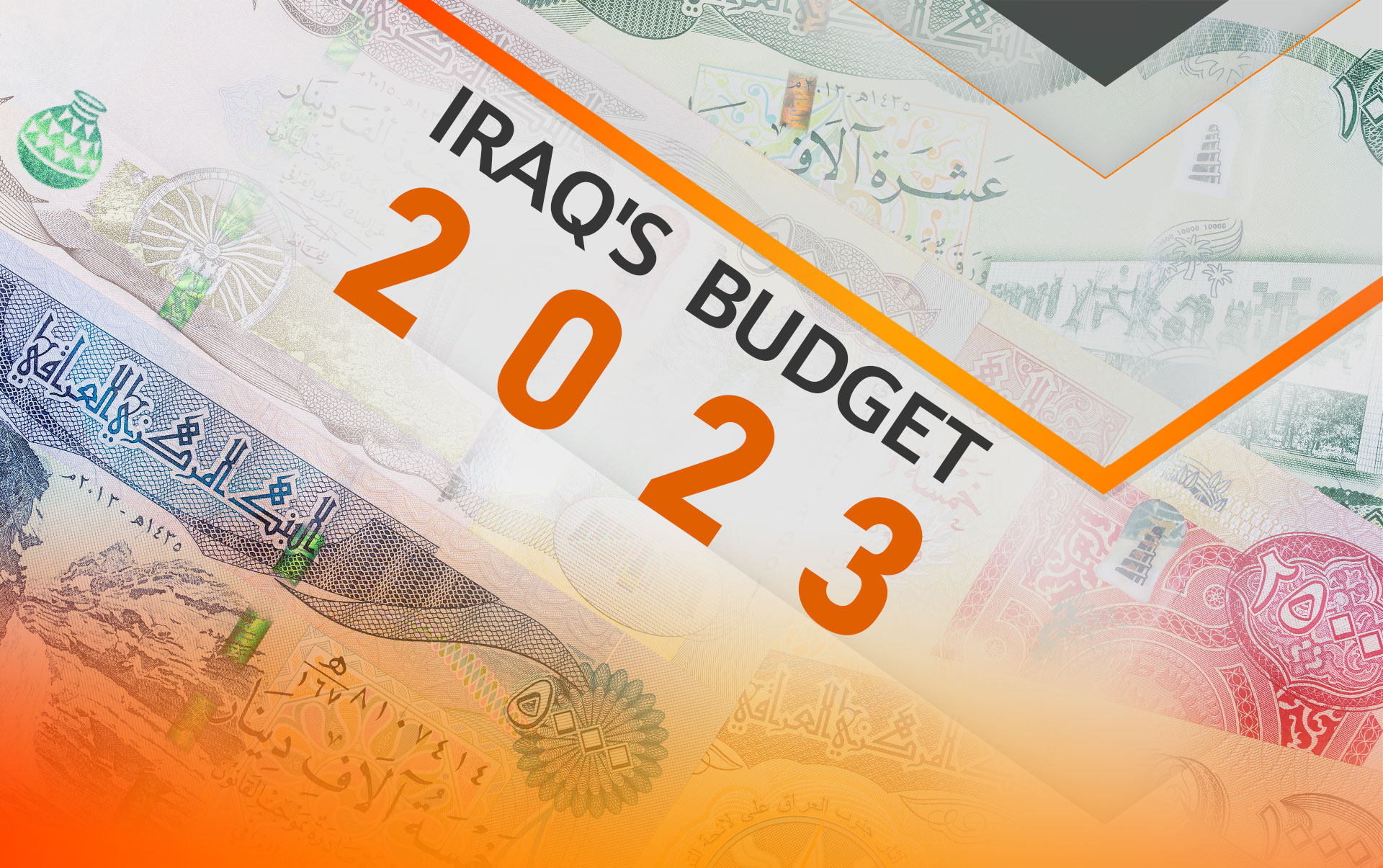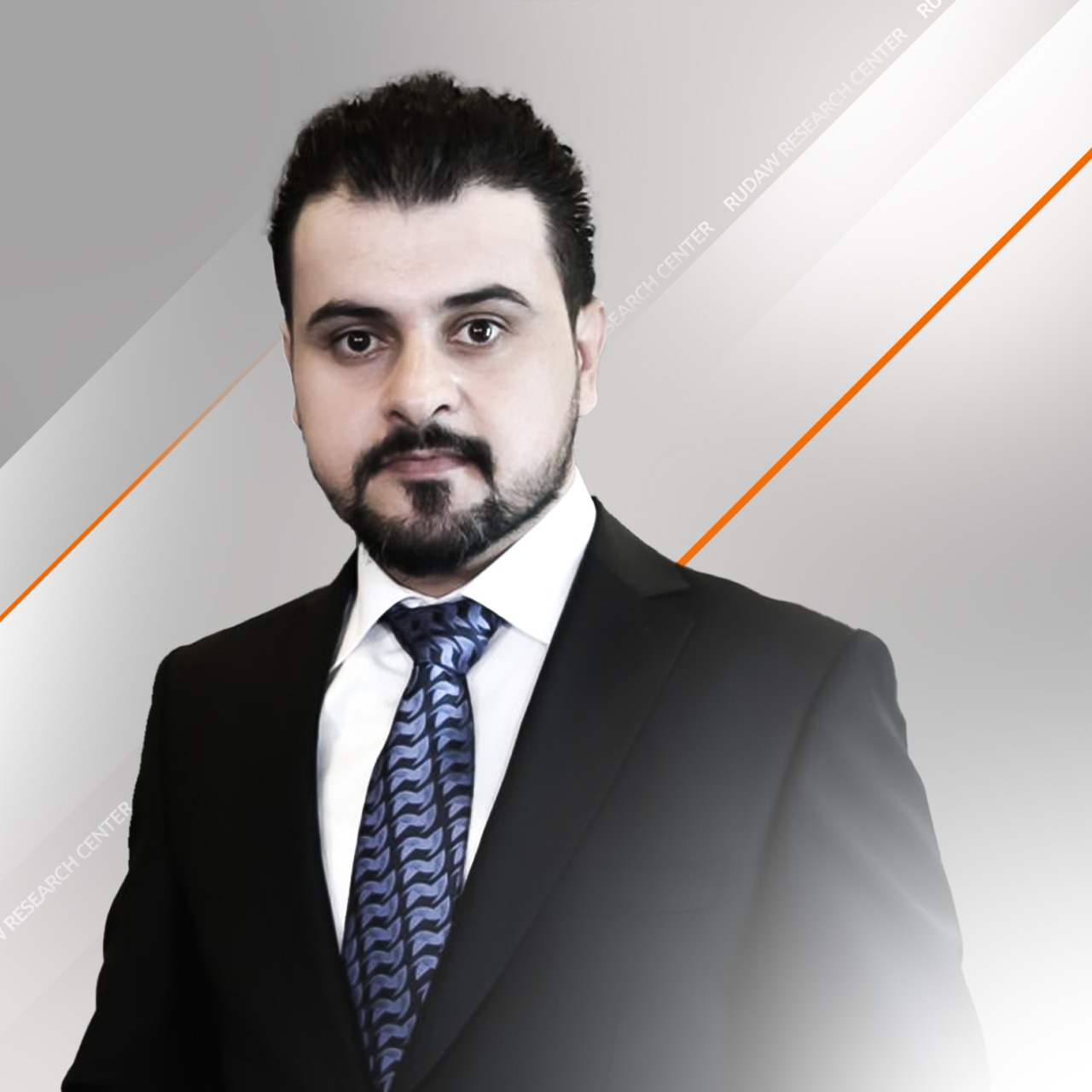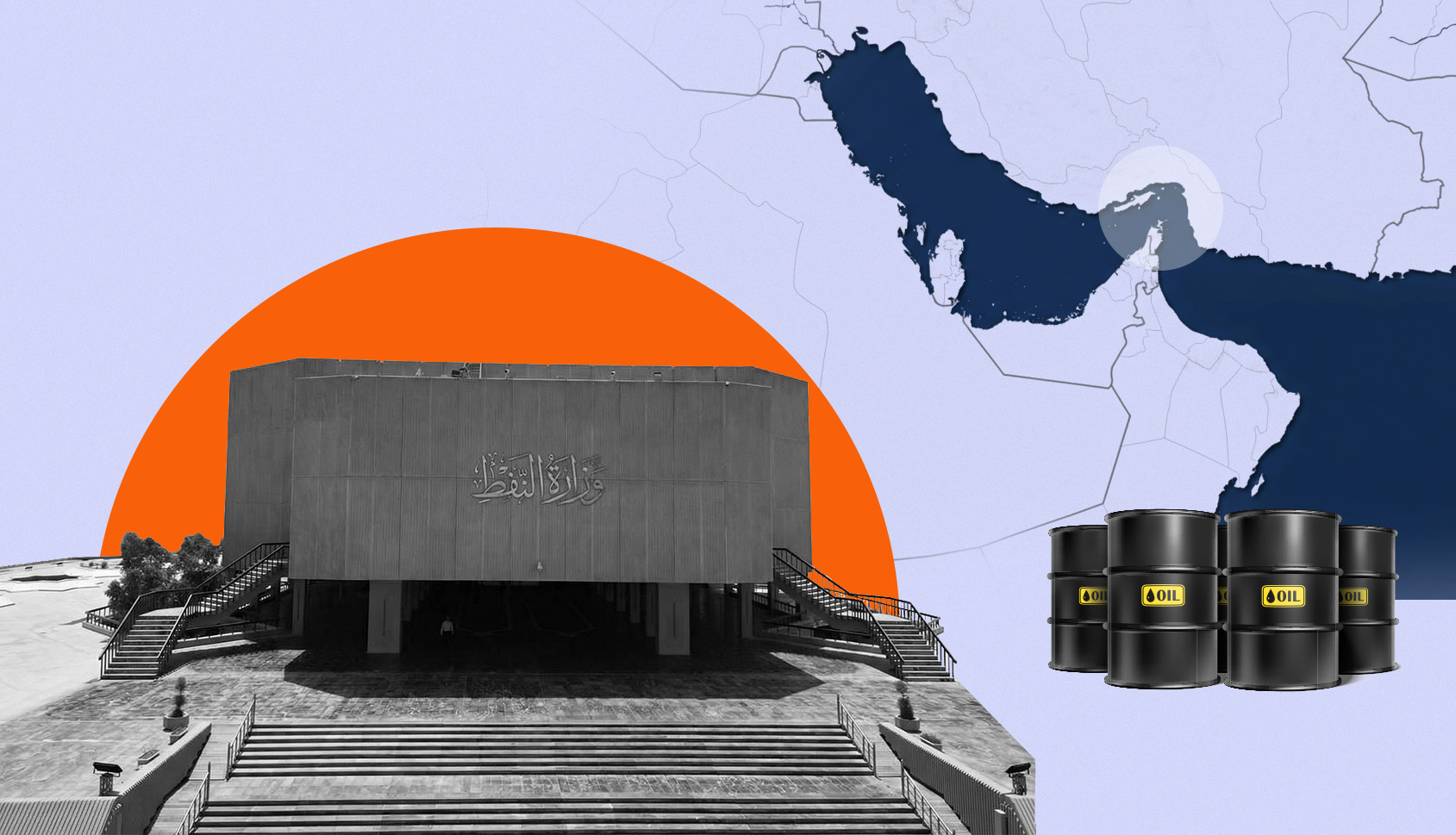Intro
Although Iraq's revenues have exceeded $90 billion this year, the government could not set a budget for 2022, the same as in 2020. However, the Iraqi government is now preparing the 2023 budget. Due to the central bank's reserves and oil prices, the 2023 budget is expected to be the most significant proposed budget for Parliament in the modern history of Iraq.
The debate over the 2023 budget revolves around several significant issues, such as: determining the price of a barrel of oil and the volume of Iraqi exports for the next year, the share of ministries, ruling blocs, and significant stakeholders, and the budget of the Kurdistan Region. However, there are many comments on what will happen to the Iraqi Dinar in front of the dollar in the budget.
Despite Al-Sudani's early promises to resolve the issues, there is no intention to put Kurdistan Region's share in the budget. Baghdad may prefer sending 200 billion dinars per month from determining the percentage of the Kurdistan Region in the 2023 budget. The Kurdistan Region believes that approving 17% of the budget is legitimate right, while Baghdad determines from 12% to 14% only if it agrees to include it.
Hence, we will look over the expectations of Iraq's budget for the year 2023 in terms of the Ministry of Finance's initiative for budget transparency and Corruption, the World Bank's proposal for Iraq, oil prices in the budget, and the share of the Kurdistan Region.
The Ministry of Finance Initiative and Corruption Issues in Iraq
The Ministry of Finance, during Shia's Cabinet, launched an open budget website, saying that "the adoption of the open budget system will ensure the participation of citizens in the democratic process, and achieve" more openness, transparency and oversight of the budget, and the provision of information[1]. Recently, The Ministry of Finance has presented good numbers transparently. This is because the ministry published the revenues and expenditures until November[2], when the volume of spending amounted to 79 trillion dinars, and the gains were more than 136 trillion. For the first time in two decades, there was a budget surplus in just nine months, expected to increase by the end of 2022.
On the other hand, regarding confronting Corruption and the case of the "theft of the century" and the return of the money, which amounted to 3.7 trillion dinars from taxes, Al-Sudani appeared with a quantity of cash and said[3] that "some of the stolen tax money was returned." Although the total amount of money recovered has reached more than 317 billion dinars, the total amount of stolen cash is 3.7 trillion[4]. Only 11% were returned, and the fate of 89% still needs to be discovered.
Furthermore, we must remember that confronting or fighting Corruption was mentioned in all Iraqi cabinets, and Sudani is not the first PM to appoint a supreme committee to fight Corruption. For example, Al-Maliki formed the Joint Committee against Corruption. However, his political rivals used the Corruption that occurred during his two cabinets against him. Al-Abadi created the Supreme Council for fighting Corruption, bringing Iraqi currency reserves to their lowest level in history. Later, Adel Abdul-Mahdi reconstituted a high-level committee, which was about to put him on trial for Corruption, and Mustafa Kadhemi announced a "high-level committee to confront corruption." However, a report prepared by the Intelligence Committee now says that Kadhemi office was involved in the "theft of the century." However, the Federal Supreme Court suspended Al-Kadhemi's committee "due to constitutional violations."
Corruption in Iraq is related to the system, as everyone is considered a system component. "The rampant and systematic Corruption is one of the biggest challenges facing Iraq. The economic costs and negative impact on stability are enormous because it undermines progress, deprives citizens of their rights, and discourage foreign investment. This means that the 'theft of the century' will not be the last[5].
The Finance Ministry's initiative to show the numbers online comes while the PM makes more daily decisions. However, we must wait and see what will happen at this stage because Mustafa Kadhemi's government started with a white paper and ended with the theft of the century.
The World Bank asks Iraq to join the green growth.
World Bank Call for Green Growth in Iraq
On December 13, 2022, the World Bank called on the Iraqi authorities to invest $233 billion by 2040 in "green growth" to reconcile the goals of sustainable development and climate protection.
"In Iraq, the climate crisis, an oil-dependent development model, weak human and institutional capacities, deep social divisions, and gross inequalities are a storm against development[6]"
World Bank
Iraq is also among the most vulnerable to climate change, both in terms of physical responses such as rising temperatures, water shortages, and emergencies, as well as financially, because it depends on oil which is losing itself as a commodity in the global economy after which "vulnerabilities become apparent" on Iraq.
The World Bank Request is relatively easy for Iraqi decision-makers because, for 18 years, it will only invest in a green economy or green growth, an investment in renewable energy to protect the future of Iraq's climate. The World Bank's request to Iraq would only cost two years of oil revenue.
However, attention is now turning more to reform. Therefore, on December 12, 2022, the Cabinet announced in an extraordinary meeting that the Prime Minister had given the Directors General three months and six months to the ministers, governors, and advisors to evaluate their work[7]. This assessment depends on the extent to which government programs are being implemented.
Dollar, oil prices and the Kurdistan Region's share
Re-sending 200 billion dinars per month to the Kurdistan Region has been a strategic plan toward the Kurdistan Region since Adel Abdul Mahdi's government. First, the Iraqi government started estimating the revenues of the Kurdistan Region and determining its share of the Iraqi budget, which began with more than 400 billion, then reduced, then not sent. It ended with a temporary agreement that depended on Iraq's financial situation and oil prices.
When relations between Erbil and Baghdad and Iraq's financial situation are good, the 200 billion is sent. However, when oil prices rise, it stops, and meetings resume negotiating the matter. When relations are not good, it is possible to interfere with other financial sources for the Kurdistan Region (oil resources), as we witnessed in the past nine months of 2022. Therefore, from now on, it is clear what the share of the Kurdistan Region will be.
The oil price in the budget will also significantly impact all components of the budget because if the oil price is $10 less or more than the average price of 2023, it will set a considerable surplus or deficit. For example, if Iraq exports an average of 4 million barrels of oil per day in 2023, and the price is $10 less than the budgeted price, there will be a deficit of about $14.52 billion or vice versa.
The Iraqi parliamentarians, especially the Finance Committee's reading of price expectations for 2023, may need to be corrected. As an example of previous budgets, the oil price was set at $45 per barrel, but the average cost of Brent crude in 2021 reached $70.86. Therefore, the issue of parliamentarians' experience or lack of experience in these issues is an essential factor that must be considered.
The budget's third and most important aspect point, is the dollar's exchange rate. Mustafa Kadhemi's government cleverly and boldly raised the dollar from 1118 dinars to 1145 dinars, but the Central Bank's reserves reached a new record high and saved the Iraqi economy from collapse.
As the Central Bank of Iraq said,
"the value of the dinar will be adjusted regularly"
Iraqi Central Bank
but this does not end the story of what will happen to the dinar against the dollar. Because Nouri al-Maliki recently called for devaluing the dollar by 5.5% against the dinar, that is, 1375 dinars instead of 1450 dinars, such statements and the amount of daily supply of dollars will affect the value of the Iraqi dinar. . The price of the US dollar exceeded 1552 dinars, which created a state of significant instability in the market. If it continues in this way, inflation will set a new record.
Indeed, the adjustment of the dinar against the dollar will have a total impact on prices, so some expect tensions to arise during the discussion of the 2023 budget.
The 2023 budget will remain the same due to the structure of the Iraqi regime and the forces that make it up. According to Transparency International, Iraq rose only five places in terms of Corruption, from 18th to 23rd in a decade, as Iraq ranked 157th out of 180 countries.
The Kurdistan Region's share in the budget and the allocation of ministries and service projects after the stabilization of oil prices will be repeated in numbers.
The budget discussions come at a time when poverty among one million working children in Iraq has reached 38 percent, according to the Ministry of Planning. In all, the poverty rate in Iraq is 25%, which means that one out of every four Iraqis is poor! Today, more than 60 percent of Iraq's population is under 25, and 700,000 young people enter the market annually.
Finally, we must wait and see if Iraq's 2023 budget is a repetition of previous numbers or if it will fundamentally change the consumption and investment budget and take into account the advice of the World Bank and the International Monetary Fund. However, the question for the Iraqi and Kurdistan streets is the future of the dinar's value because it depends on their daily life and purchasing power.
Reference:
[1] http://www.mof.gov.iq/obs/ar/Pages/default.aspx
[2] file:///C:/Users/Mahmood/Downloads/Inyear%20Report%20October%202022.pdf
[3] https://www.rudaw.net/sorani/business/271120225
[4] https://www.rudaw.net/sorani/business/271120225
[5] https://reliefweb.int/report/iraq/message-jeanine-hennis-plasschaert-un-srsg-iraq-international-anti-corruption-day-9-december-2022-enkuar
[6] https://www.worldbank.org/en/news/press-release/2022/12/13/iraq-economic-diversification-is-urgent-to-reconcile-development-goals-and-climate-ambition
[7] https://www.rudaw.net/sorani/middleeast/iraq/13122022
کلیك بکە بۆ بینینی سەرچاوەکان
References





